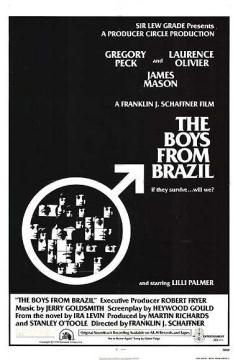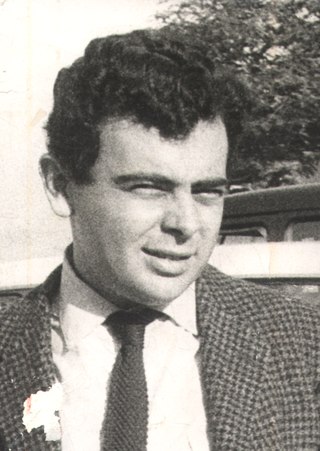
Brazil, officially the Federative Republic of Brazil, is the largest and easternmost country in South America and in Latin America. Brazil is the world's fifth-largest country by area and the seventh most populous. Its capital is Brasília, and its most populous city is São Paulo. The federation is composed of the union of the 26 states and the Federal District. It is the only country in the Americas to have Portuguese as an official language. Brazil is one of the most multicultural and ethnically diverse nations, due to over a century of mass immigration from around the world.

Brazil is a 1985 science-fiction dystopian black comedy film directed by Terry Gilliam and written by Gilliam, Charles McKeown, and Tom Stoppard. The film stars Jonathan Pryce and features Robert De Niro, Kim Greist, Michael Palin, Katherine Helmond, Bob Hoskins, and Ian Holm.

Saludos Amigos is a 1942 American live-action/animated propaganda anthology film produced by Walt Disney and released by RKO Radio Pictures. Set in Latin America, it is made up of four different segments; Donald Duck stars in two of them and Goofy stars in one. It also features the first appearance of José Carioca, the Brazilian cigar-smoking parrot. Saludos Amigos premiered in Rio de Janeiro on August 24, 1942. It was released in the United States on February 6, 1943.

The Boys from Brazil is a 1978 thriller film directed by Franklin J. Schaffner. It stars Gregory Peck and Laurence Olivier, and features James Mason, Lilli Palmer, Uta Hagen, Anne Meara, Denholm Elliott, and Steve Guttenberg in supporting roles. The film is a British-American co-production, based on the 1976 novel of the same title by Ira Levin. It was nominated for three Academy Awards.
The year 2000 in film involved some significant events. The top grosser worldwide was Mission: Impossible 2. Domestically in North America, Gladiator won the Academy Awards for Best Picture and Best Actor. Dinosaur was the most expensive film of 2000 and a box-office success.
2002 in film is an overview of events, including the highest-grossing films, award ceremonies, festivals, a list of country- and genre- specific lists of films released, notable deaths and film debuts. Paramount Pictures celebrated its 90th anniversary in 2002.
This is a list of films released in 1995. The highly anticipated sequel Die Hard with a Vengeance was the year's biggest box-office hit, and Braveheart won the Academy Award for Best Picture.
2005 in film is an overview of events, including the highest-grossing films, award ceremonies, festivals, a list of country-specific lists of films released, notable deaths and film debuts.
The following is an overview of events in 2006, including the highest-grossing films, award ceremonies and festivals, a list of films released and notable deaths. Pixar celebrated its 20th anniversary in 2006 with the release of its 7th film, Cars.

Glauber de Andrade Rocha was a Brazilian film director, actor and screenwriter. He was one of the most influential moviemakers of Brazilian cinema and a key figure of Cinema Novo. His films Black God, White Devil and Entranced Earth are often considered to be two of the greatest achievements in Brazilian cinematic history, being selected by Abraccine as, respectively, the second and fifth best Brazilian films of all-time. Rocha also the distinction of having the most films on Abraccine's list: 5 films.

Brazilian cinema was introduced early in the 20th century but took some time to consolidate itself as a popular form of entertainment. The film industry of Brazil has gone through periods of ups and downs, a reflection of its dependency on state funding and incentives.
A list of films produced in Brazil ordered by year and split onto separate pages by decade. For an alphabetical list of films currently on Wikipedia see Category:Brazilian films

The history of Brazilian animation is relatively recent. In the first half of the 20th century, there were some small experiments produced in animation without much continuity, to the emergence of several animated films in the other half of the century. The 21st century saw the advent of many animated series for television.
This page is based on this
Wikipedia article Text is available under the
CC BY-SA 4.0 license; additional terms may apply.
Images, videos and audio are available under their respective licenses.







